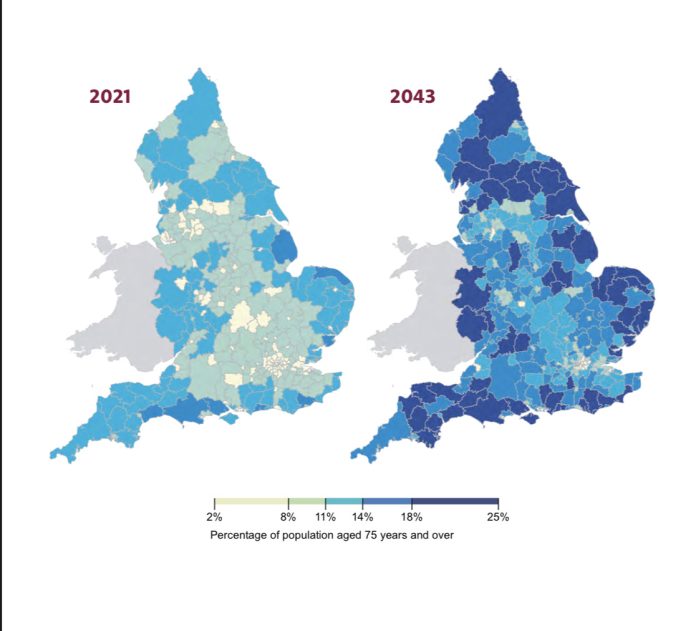England’s Chief Medical Officer has warned that the UK faces an ageing crisis.
In his annual report, Prof Sir Chris Whitty, said people are living longer but some spend many of their later years in bad health. He called for a cultural shift in medicine away from maximising lifespan and towards improving quality of life in old age, arguing that sometimes this means “less medicine, not more”.
The report says that People are living longer which is a triumph of medicine and public health.
It is something to celebrate, but alongside this we have a responsibility in medicine, government and wider society to plan to ensure that older age is as healthy, independent and enjoyable as possible into the future.
People’s independence can be maintained he says via two broad approaches, which are complementary.
The first is to reduce disease, including degenerative disease, to prevent, delay or minimise disability and frailty. The second is to change the environment so that, for a given level of disability, people can maintain their independence longer. We must do both.
The geography of older age in England is already highly skewed away from large urban areas towards more rural, coastal and other peripheral areas, and will become more so.
Efforts to achieve shorter periods in ill health and an easier environment for those with disabilities, should concentrate on areas of the country where the need is going to be greatest. Expansion of medical and NHS services need to be in these areas.
The report pointed to strong evidence “that being physically active, eating a healthy, balanced diet, not smoking and moderating alcohol consumption improves health outcomes and increases the proportion of life spent in good health”.
The report also said it is “possible to compress the period of ill health” people suffer by delaying the point at which they fall ill – and in some cases so they never get a disease before dying.
As well as making it easy to exercise, the report said: “Reducing smoking, air pollution and exposure to environments that promote obesity are other examples where the State has a major role to play in delaying or preventing ill health and disability over a lifetime and into older age.”
This is an optimistic report says Professor Whitty. There are many things we can do to improve health and independence of older citizens if we are systematic about it.
This will however require active decisions and actions by individuals, government and health professionals.







